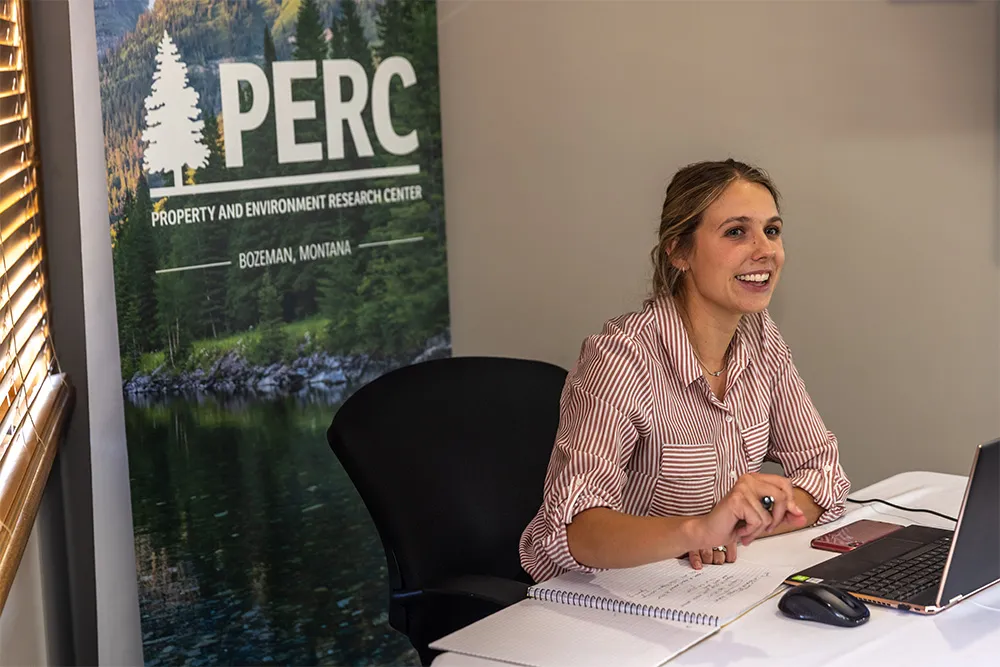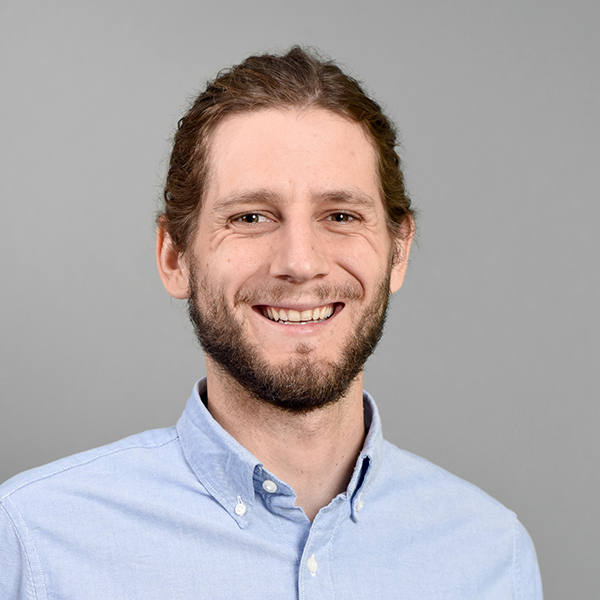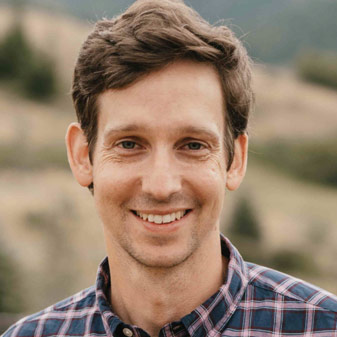Research • Programs
Fellowships
Conducting quality research is at the core of PERC’s mission. Through our fellowships, PERC invites scholars, law, and graduate students to spend time at our headquarters in Bozeman, Montana, working on a research project addressing a pressing environmental challenge.

Lone Mountain Fellowship
PERC’s Lone Mountain Fellowship offers a unique opportunity for scholars to undertake a project that advances our understanding of how markets, public policy, property rights, and governance affect environmental resources.
Lone Mountain Fellows will:
- Undertake a research project such as a scholarly paper for an academic journal, or a study or report for a PERC publication
- Spend at least a portion of their fellowship in residency at PERC headquarters in beautiful Bozeman, Montana
- Network with leaders in diverse fields of study related to markets, resource governance, public policy, and the environment.
Fellows receive a stipend that varies with the nature of the work, duration of residence at PERC, and the fellow’s qualifications. Office space and office support are provided. Fellows are responsible for their own travel and living arrangements. PERC may also provide some commuter bicycles that can be used during residency.
Project Requirements:
- Topic: The project should focus on natural resources and environmental issues, including the study of markets, governance, public policy, property rights, and/or innovation. PERC is especially interested in projects that in some way address or inform issues related to natural resource policy and conservation, broadly defined. Projects that address current issues related to forests, water, wildlife, and land conservation are of particular interest in 2024. Early-stage work is encouraged.
- Residency: Fellows spend approximately two or three weeks in residence at PERC between mid-June and mid-August.
- Presentation: Fellows are expected to circulate a draft paper and give at least one seminar while at PERC.
- Participation: Fellows are expected to interact with other PERC scholars and fellows while in residence and attend seminar presentations by other fellows. The fellowship is intended to be an opportunity to either establish or strengthen a continuing relationship with PERC.
Lone Mountain Fellowship Directors
Bryan Leonard is an associate professor of environmental and natural resource economics in the School of Sustainability at Arizona State University, as well as a PERC senior fellow.
Sara Sutherland is a lecturer in agricultural and resource economics at the University of California Davis, as well as a PERC senior research fellow.
How to Apply
To be considered for a 2024 Lone Mountain Fellowship, please send a C.V. and a 2-3 page description of the proposed project to fellows@perc.org with “Lone Mountain Fellowship” in the subject line. Please contact the directors Bryan Leonard and Sara Sutherland at fellows@perc.org with any questions.
APPLICATIONS ARE NOW CLOSED
The priority application deadline is February 1, 2024, but applications will be considered until fellowships are full.
Graduate Fellowship
PERC’s Graduate Fellowship offers the ideal opportunity for graduate and law students to conduct research related to natural resources, innovation, property rights, and the environment.
Graduate Fellows will:
- Work on a thesis or dissertation with guidance and feedback to fast track their research
- Interact daily with experts in fields including economics, law, and environmental science
- Spend two summer months at PERC’s headquarters in beautiful Bozeman, Montana
- Receive a monthly stipend
Project Requirements:
- Project Topics: The project should focus on natural resource and environmental issues, including the study of property rights and/or innovation. The Graduate Fellows program prioritizes research related to water, wildlife, and land conservation, broadly defined.
- Residency: Graduate Fellows spend two months in residence at PERC, from mid-June to mid-August.
- Presentations: Graduate Fellows are expected to present two seminars at PERC to outline, report on, and summarize their research findings.
- Participation: Fellows are expected to interact with other PERC scholars and fellows while in residence and to attend seminar presentations by other fellows throughout their stay.
- Final Project: A final paper of publishable quality is generally expected at the conclusion of the fellow’s residency.
Graduate Fellowship Directors
Eric Edwards is an assistant professor in agricultural and resource economics at the University of California Davis, as well as a PERC senior research fellow.
How to Apply
Applications should be submitted via email to gradfellows@perc.org and should include three attachments:
APPLICATIONS ARE NOW CLOSED
The priority application deadline is February 1, 2024, but applications will be considered until fellowships are full.


